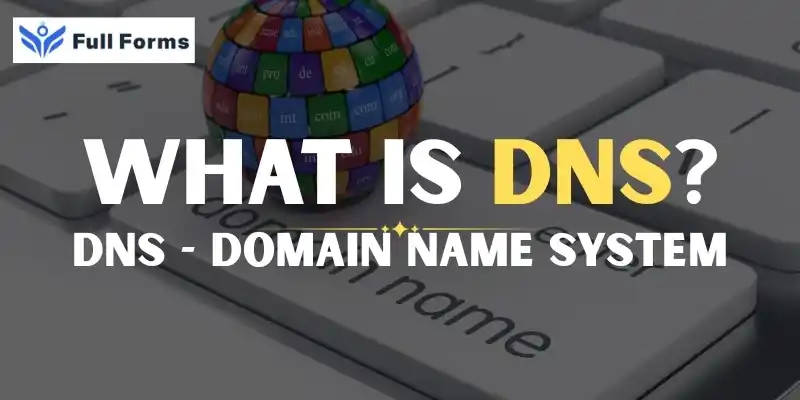Domain Name System
(DNS)

Description
Domain Name System (DNS) – A Simple Explanation
Have you ever thought about how your computer knows where to find a website when you type in www.google.com? The short answer is the Domain Name System, or DNS for short. Every time you go to a website, it works quietly in the background, but it is very important to how the internet works.
Let's make it as simple as we can.
What is DNS?
The Domain Name System (DNS) is like the internet's phone book. DNS lets us use easy-to-remember names like facebook.com or youtube.com instead of long strings of numbers called IP addresses.
Picture this: you want to call your friend Rahul. You don't have to remember his phone number all the time. You just save his name in your contacts and tap it when you want to call him. DNS does the same thing for websites. It links the name of a website to the real address where that website is kept.
Why do we need DNS?
IP addresses are how computers and other devices on the internet find each other. An IP address looks like this: 192.168.1.1 or 2001:0db8:85a3::8a2e:0370:7334 (IPv6). People don't find these easy to remember.
DNS makes it easy for us to type in a domain name like amazon.com and have it automatically find the right IP address. This makes the internet easy for everyone to use.
What is DNS and how does it work?
For example, you type www.wikipedia.org into your browser. Here's what happens in order:
- Browser checks cache: The first thing your browser does is see if it already knows the IP address for wikipedia.org. If so, it connects right away.
- DNS resolver: If your browser doesn't have the IP, it asks your DNS resolver, which is usually provided by your internet service provider.
- Root servers: If the resolver doesn't know, it asks the root DNS servers — the top level of the DNS system.
- TLD servers: The root server tells the resolver where to find the
.orgservers (Top Level Domain servers). - Find domain info: The resolver gets the information it needs to find
wikipedia.orgfrom the TLD server. - Authoritative name server: The last DNS server that gives back the correct IP address for
wikipedia.org. - Return to browser: Now your browser gets the IP address and connects to Wikipedia's web server to show you the page.
This all happens in a matter of seconds. You don't even see it!
Terms for DNS
Here are a few easy definitions to help you understand DNS better:
- Domain Name: An address that people can read, like
google.com. - IP Address: A number that computers use to find each other on the web.
- DNS Server: A server that helps change domain names into IP addresses.
- Root Server: The highest level of the DNS hierarchy; it sends DNS requests to the right place.
- TLD Server: Top Level Domain servers are in charge of things like
.com,.org,.net, and so on. - Authoritative Server: The last place to get the real IP address of a domain.
Is DNS secure?
The original purpose of DNS was not to keep things safe. This is why DNS attacks like DNS spoofing and cache poisoning can happen. But now we have safer versions like DNSSEC (DNS Security Extensions) that help keep fake responses from happening.
Also, using secure DNS services like Google DNS (8.8.8.8) or Cloudflare DNS (1.1.1.1) can make your browsing faster and safer.
Why DNS is Important to You
DNS is mostly hidden, but you use it every time you do something online, like check your email, use apps, or browse the web. You can't open websites if DNS isn't working, even if the internet connection is fine.
That's why businesses spend a lot of money on DNS services that work. A small DNS problem can bring down big websites and apps, which can affect millions of people.
Last Thoughts
One of the most important parts of the internet is the Domain Name System. Translating names into numbers makes everything easier and smoother. It's like a helpful guide that tells your browser where to go without you ever seeing it.
Even if you never have to deal with DNS yourself, knowing how it works will help you understand how the internet works, and that's always a good thing.
